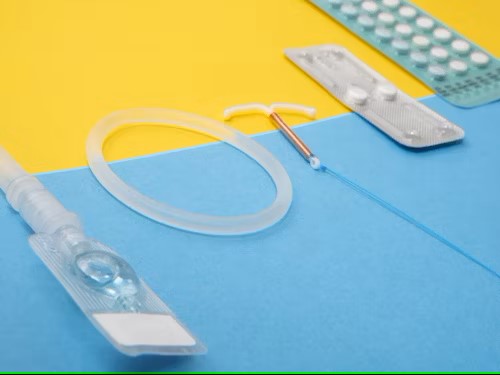
Birth Control and Nutrient Depletion: What You Need to Know
When it comes to birth control, we often talk about how it helps prevent pregnancy, regulate periods, or manage acne, but how often do we talk about its effect on the nutrients in our bodies? Spoiler alert: not as much as we should. From vitamins and minerals being zapped to your energy feeling a little off, there's a lot more going on beneath the surface than you might think.
So, let's dive into the good, and the not-so-good, and bust a few myths while we're at it!
The Nutrient-Napping Effect of Birth Control
If you've been feeling more tired than usual, or just not quite yourself, it might not be all in your head (or your hormones). Believe it or not, your birth control could be quietly stealing some key nutrients. Here are a few that tend to get hit the hardest:
Vitamins B6, B12, and Folate
Birth control—especially the pill—can reduce levels of these B vitamins. Why does this matter? Well, these vitamins are super important for energy production and keeping your mood in check. If you've been feeling extra sluggish or moody, it might be more than just PMS at play.
Magnesium
Magnesium is one of those minerals you don't think about until it's gone. It helps with everything from keeping your muscles relaxed to supporting your heart and immune system. Long-term birth control use can deplete magnesium, which might explain those random nights of tossing and turning or that anxious feeling you can't shake.
Zinc
If your skin has been breaking out more than usual, birth control could be playing a part. Zinc is essential for skin health and immune function, but hormonal contraceptives can lower its levels, potentially leaving you with stubborn blemishes or slower wound healing.
The "Wait, Really?" Stuff You Don't Hear About
Okay, so we know birth control can affect vitamins and minerals, but here's some lesser-known information that doesn't always make the headlines:
Gut Health? Yep, That Too!
Gut health isn't just a trendy buzzword—it's a vital part of overall well-being. Hormonal birth control can throw off the balance of good bacteria in your gut, leading to digestive issues like bloating or even food sensitivities. Your gut does a lot more than just digest food, so keeping it happy is important.
Iron Levels: More Isn't Always Better
If your birth control method stops or lightens your period (hello, IUD!), your body holds onto more iron because you're not losing it through menstruation. This can be a good thing if you're prone to anaemia, but too much iron can also cause problems. It's all about balance, so it's worth keeping an eye on.
Myth Busting: Birth Control Edition
Now, let's tackle some common myths that pop up when we talk about birth control and nutrients. There's a lot of misinformation out there, so let's set the record straight.
Myth #1: Supplements Are a Must if You're on Birth Control
Hold up! While birth control can lower some nutrient levels, that doesn't mean you need to run to the store and buy all the supplements. It's always better to test your nutrient levels first before adding pills to your routine. Too much of a good thing (like vitamins) can actually backfire. Talk to your doctor before making any big changes.
Myth #2: All Birth Control Affects Nutrients in the Same Way
Not true! Different types of birth control affect your body in different ways. For example, oral contraceptives (the pill) are more likely to deplete B vitamins and magnesium, whereas non-hormonal options like the copper IUD don't have the same effect—though they may increase copper levels in your body. Knowing the method you're using can help you understand its specific impacts.
Myth #3: Nutrient Depletion Equals Weight Gain
This one's tricky because weight gain while on birth control can be due to a bunch of factors, but nutrient depletion isn't the main culprit. Hormonal changes can sometimes lead to increased appetite or water retention, but there's no concrete evidence linking nutrient loss to weight gain. If you're worried about this, focus on a balanced diet and staying active, which will help regulate both your nutrients and your weight.
The Bottom Line
Birth control can have some surprising effects on your body's nutrient levels, but the good news is, it's manageable! Every woman's body reacts differently, so it's all about paying attention to how you feel and making small adjustments where needed. At the end of the day, it's your body, your choice, and your health. Take care of it however you see fit.
Not Medical Advice: Always consult with your doctor or a qualified healthcare provider before making any changes to your medication, supplements, or health routine. Your individual needs and medical history matter—please seek personalized advice.
If you or somebody you know is struggling with something difficult and needs to get in touch with a therapist, consider reaching our Support and Engage verticals for affordable and inclusive help!
Like our content? Please show us some support by sharing and up-voting!
Image Credits: Unsplash
